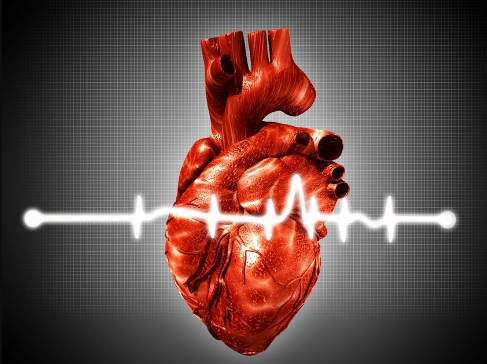
The American Heart Association (AHA) is developing a registry to aggregate data and aid research on treatment protocols and risk factors tied to adverse cardiovascular outcomes in the wake of the COVID-19 pandemic. The free registry, powered by the association’s Get With The Guidelines (GWTG) hospital quality improvement program, will be available to more than 2,400 hospitals currently participating in a GWTG module beginning next month. Researchers will have access to aggregate data through the association’s Institute for Precision Cardiovascular Medicine. Studies have reported COVID-19 patients presenting with or developing heart failure, cardiogenic shock, stroke and lethal arrhythmias secondary to the disease. However, limitations have arisen due to the lack of a structured collection of data, raising concerns about indication bias for most laboratory testing. Looking to provide help, the AHA’s registry will collect biomarkers, clinical data and cardiovascular outcomes in COVID-19 patients. The registry will focus on granular data collection from organizations that regularly test biomarkers in those suffering from the disease.

Researchers: Medicare changes could boost TAVR access
New Medicare rules have lowered procedural volume requirements for hospitals looking to offer transcatheter aortic valve replacement (TAVR) to their patients. But will that help those who have had difficulty getting the procedure in the past? “We’re expanding access, but we don’t yet know if it’s in the right areas,” says Mike Thompson, an assistant professor of cardiac surgery at the Michigan Medicine’s Frankel Cardiovascular Center and lead author of a new research letter published April 1, 2020, in JAMA Cardiology. Thompson says new TAVR offerings in rural areas could prove essential; however, he questioned the need for additional hospitals performing the procedure in already crowded markets. “Some professional associations are concerned that the restrictions may be loosed too much,” Thompson added. “As we move forward, it will be important to study which hospitals begin providing TAVR, and whether they are capable of providing it in a high-quality way.”
Muscle protein serves big role in blood clotting during heart attack
Cardiac myosin, which is released when a person suffers a heart attack, can cause blood to thicken or clot – worsening damage to heart tissue, a new study shows. John Griffin, a professor in the department of molecular medicine at Scripps Research, led the team that made this determination after a series of experiments. Blood clotting is the root cause of many cardiac events, such as heart attack and stroke. However, scientists didn’t know that cardiac myosin was implicated in that process. Blood coagulation is essential to prevent bleeding after an injury, and the most abundant procoagulant protein is collagen. However, it’s not usually exposed to blood. Upon blood vessel and tissue damage, many procoagulant factors, including collagens, cause blood to turn from a liquid into a gel, thereby forming a clot and reducing blood loss. However, procoagulants provide the balance between stopping bleeding and preventing excessive clotting, as occurs in conditions such as deep vein thrombosis or when a blood clot causes a stoke. “Just as with inflammation, a little coagulation is good, but too much is dangerous,” Griffin explained. “While a small amount of cardiac myosin might help reduce bleeding in the heart, an excess of the protein may worsen the injury by promoting blood clots that cut off oxygen and exacerbate damage to heart tissue.” Indeed, Griffin and his collaborators found that excess cardiac myosin doubled heart damage when administered to mice who experienced controlled heart attacks. The team now working with scientists at Calibr, the drug discovery and development division of Scripps Research, to develop a therapeutic compound that would target the procoagulant activity of cardiac myosin, reducing tissue damage caused by a heart attack. Griffin hopes to see the development of an anticoagulant medicine that targets only cardiac myosin-driven coagulation. This product potentially could be administered to hospitalized patients immediately after an acute cardiac event. The findings were published Feb. 27, 2020, in Arteriosclerosis, Thrombosis, and Vascular Biology.